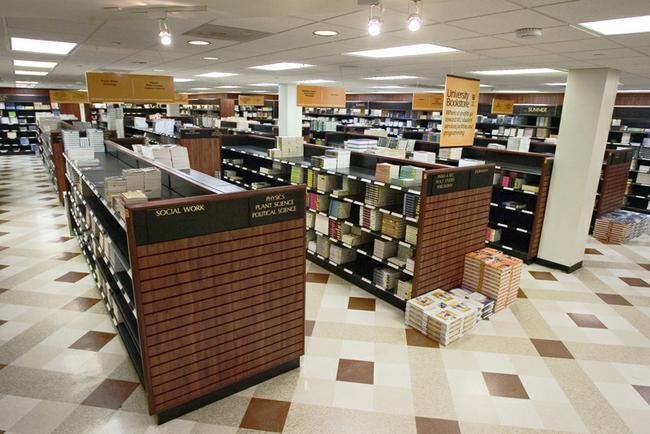
As the fall semester winds down, students have begun the frantic search of selling back old textbooks.
Although University Bookstore has operated the predominant system for the process in the past, many students are finding alternative ways to exchange their books.
Freshman David Wettroth, of The Maneater staff, along with the help of freshman Nick Dore, created a Facebook group, “Mizzou BookXchange,” with the intent of enabling students to avoid the bookstore’s system altogether and exchange the books among themselves.
The buyback system implemented by the bookstore is in constant fluctuation due to supply and demand.
“Every book is different,” Student and Auxiliary Services spokeswoman Michelle Froese said in an email. “However, when a book is being required for a class the following semester and we need copies for our stock, we can pay students up to half of the new price of the book. So, if you bought a used book for $75 (new price was $100) and the book was on our buyback list, you could receive $50. So that book ended up costing you just $25.”
The situation demonstrates the best-case scenario for students. Multiple unpredictable factors, such as the bookstore’s inventory and classes changing textbooks, leave many students with unfavorable deals. When UM System campuses are not in need of a specific textbook, the value drops significantly.
“If books are not being used on any of these campuses, then a textbook wholesaler (the company that conducts our buyback) may purchase it at wholesale price (0-35 percent of new book price),” Froese said in an email. “When you get less than 35 percent of new book price at the MU Bookstore buyback, that book has been purchased by a the wholesale company to sell to other bookstores across the nation.”
Timing is another factor for the buyback prices of textbooks. The value of one book might vary significantly from one time to another based on the bookstore’s inventory level.
“A student who brought the same book in after we receive a faculty order would likely get more money,” Froese said. “This is very frustrating for students.”
Wettroth said these complications often prevent students from getting a reasonable value out of their books.
“I want students to be able to get the most out of these books,” Wettroth said. “When you sell your books back to the university, you get close to 10 percent back on the book, although they boast returns starting at 50 percent. (Mizzou BookXchange) sets up a student-to-student market where you can sell your books for more money, but also buy them for less than the bookstore.”
The efficiency of the system has quickly caught interest among students. Since the Facebook group’s launch Nov. 19, 190 students have joined. The members are constantly posting their old textbooks that are up for sale and their desired textbooks for the following semester. Through the group, simple transactions are organized between students on a daily basis.
Belltower Books, a New York-based company, provides another alternative to the traditional bookstore buyback system.
“We bring convenience to customers by purchasing their textbooks for cash on the spot,” said freshman Vince Van Haute, one of three MU Belltower Books representatives. “We can meet with the student in person when and where it is convenient for them and buy any unwanted books.”
Froese said there is value in the competition created by the students’ alternative book exchange methods.
“Since buyback price is based on supply and demand, competition benefits students, which is a good thing,” Froese said. “The more opportunities that students have to sell their books, the better it is for students.”